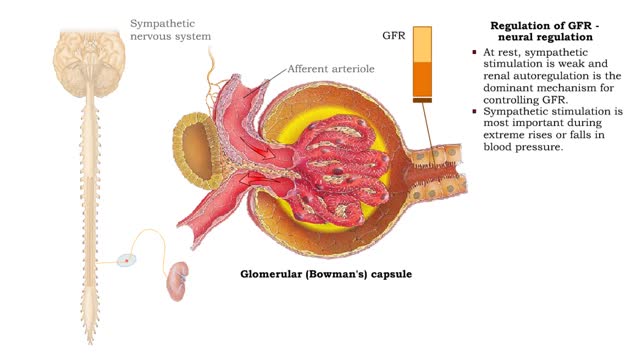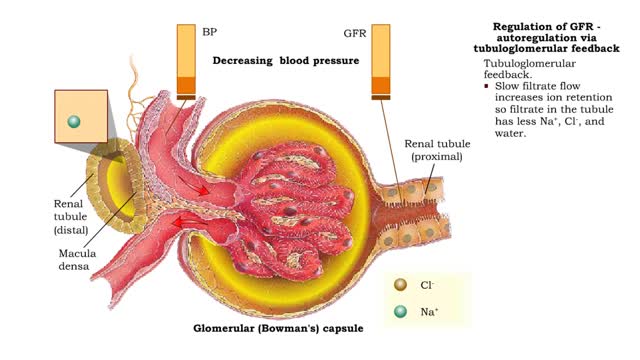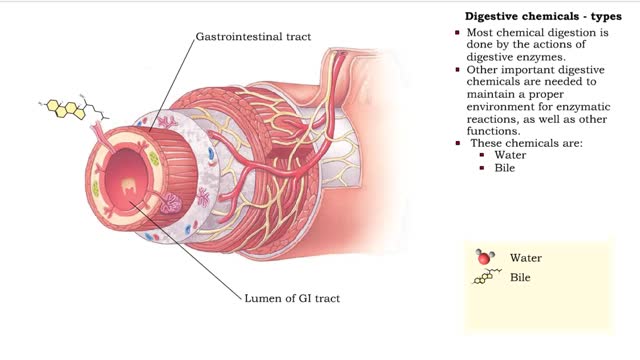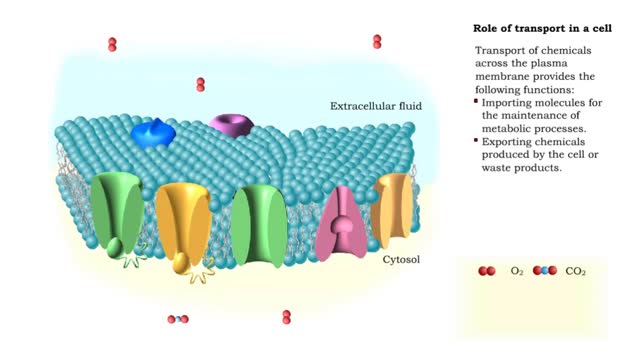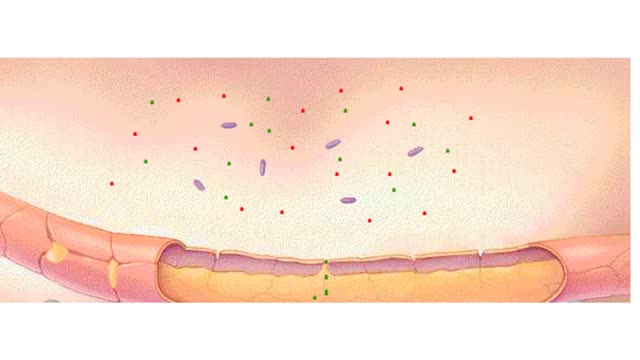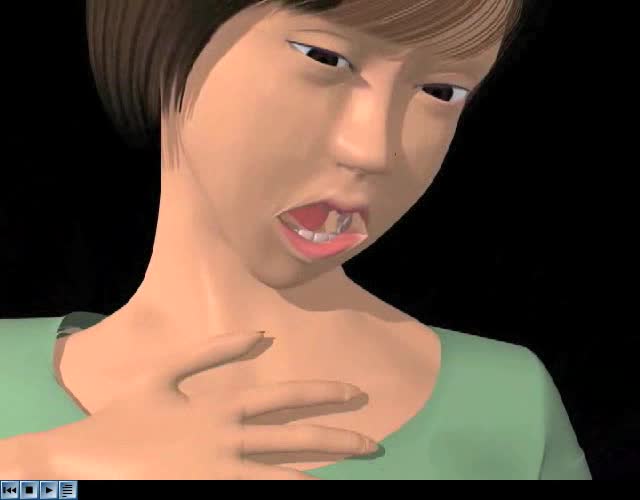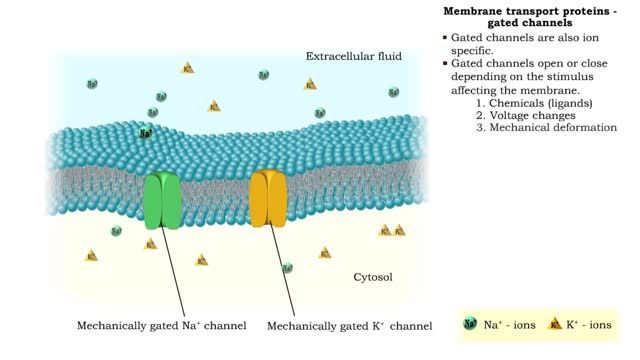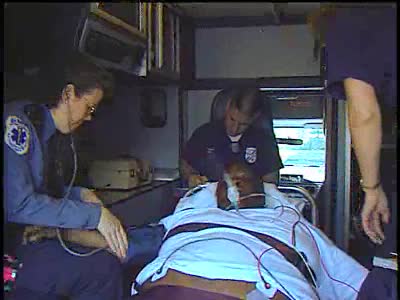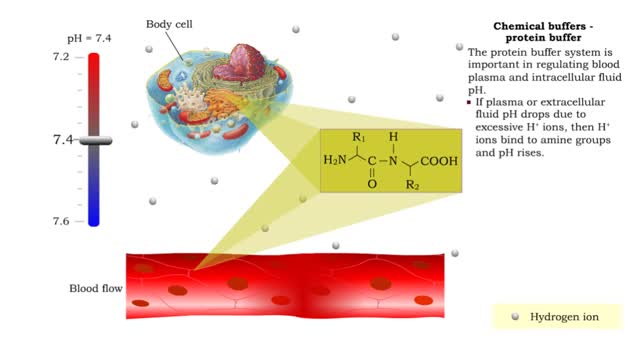Search Results
Results for: 'vasoconstricting chemicals'
Regulation of GFR: autoregulation via tubuloglomerular feedback, neural & hormonal regulation
By: HWC, Views: 12529
• When blood pressure is above normal, rapid filtrate flow reduces ion retention so filtrate in tubule has more Na+, C1-, and water. • It is believed that vasoconstricting chemicals from the juxtaglomerular cells are released when the macula densa cells detect higher water and ion levels in ...
Regulation of GFR: autoregulation via myogenic mechanism Myogenic mechanism
By: HWC, Views: 13031
• GFR can be regulated by adjusting: • Blood flow in and out of the glomerular capillaries. • Surface area of glomerular capillaries. • There are three main ways to make these adjustments: • Renal autoregulation. • Nervous regulation. • Renal autoregulation occurs when...
Digestive chemicals - types & enzymes
By: HWC, Views: 11522
• Chemical digestion breaks down food as it moves through the digestive tract. • Using enzymes and other digestive chemicals, the process reduces food particles into nutrient molecules that can be absorbed. • Most chemical digestion is done by the actions of digestive enzymes. • O...
By: HWC, Views: 11606
Transport of chemicals across the plasma membrane provides the following functions: Importing molecules for the maintenance of metabolic processes. Exporting chemicals produced by the cell or waste products. Communicating with other cells, allowing for the generation and conduction of a...
Inflammatory response Animation
By: HWC, Views: 8054
Any tissue damage or bacterial invasion can bring about inflammation. The inflammatory response can be triggered by an invasion of bacteria, or by a cut or other physical damage to cells. Chemicals, such as histamine, released by the bacteria or damaged cells. accumulate in the tissue. Thes...
By: Administrator, Views: 14254
Anaphylaxis is a serious, life-threatening allergic reaction. The most common anaphylactic reactions are to foods, insect stings, medications and latex. If you are allergic to a substance, your immune system overreacts to this allergen by releasing chemicals that cause allergy symptoms.
Membrane transport proteins - pores, gated channels and pumps
By: HWC, Views: 11597
• a Three different types of membrane ion transport proteins are required to produce and carry electrical signals: • Pores • Gated channels • Na+/ K+ pump • Pores are always open and allow the diffusion of Na+ and K+ ions across the membrane, down their concentration gradients...
By: Administrator, Views: 14883
How smoking triggers asthma attacks and respiratory issues. Secondhand smoke is smoke from burning tobacco products, such as cigarettes, cigars, or pipes. Secondhand smoke also is smoke that has been exhaled, or breathed out, by the person smoking. Tobacco smoke contains more than 7,000 ...
Chemical Buffers - protein buffer, phosphate buffer system and bicarbonate buffer system
By: HWC, Views: 11679
• There are a variety of chemicals in body fluids that prevent the fluids from undergoing large changes in. • These chemicals buffer or regulate fluctuations in H+ concentration. • Chemical buffers: • Bind to H+ ions when there are too many in a solution so pH remains normal. •...
Advertisement



